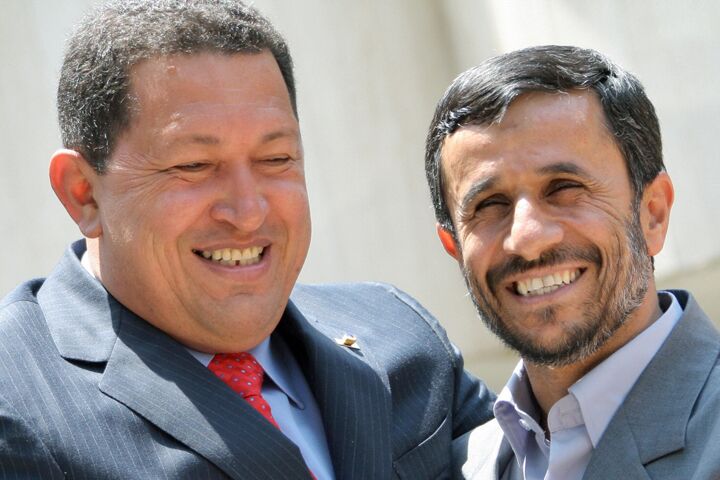
Venezuela: Goodbye America, Hello Iran
Two weeks ago, Hugo Chavez successfully pressured two of America‘s largest oil companies to quit extracting oil from Venezuela’s Orinoco belt. This week, Rafael Ramirez, Venezuela’s energy minister, announced plans for a $4 billion joint project with Iran to drill oil from the same region.
In a press release from Petroleos de Venezuela, the country’s state-run oil company, Ramirez announced that certification for a joint project to drill oil from the Orinoco belt’s Block Ayacucho 7 is underway, and production should begin within two years. The section is estimated to contain some 31 million barrels of oil.
The announcement about the project comes in the wake of a visit by Hugo Chavez with Iranian President Mahmoud Ahmadinejad, and is one of 33 energy agreements Venezuela has made so far with Iran. The visit between the two leaders, reported United Press International, “further cemented growing ties between the two petroleum economies. Chavez came away from his meetings with Iranian officials with deals for joint industrial centers, a joint-run petrochemical plant and a joint-run international oil company” (July 10).
In addition to gaining access to some of Venezuela’s largest oil deposits, Ahmadinejad walked away from his meetings with Chavez with an agreement from Venezuela to sell much-needed gasoline to Iran. Iran is one of the largest oil suppliers in the world, but its lack of refining capacity forces it to import 40 percent of its gasoline. Recently, in an effort to curb costly gasoline imports, the Iranian government launched a controversial fuel rationing program.
“Yes, the Iranians have asked to buy gasoline (from us) and we have accepted this request,” Ramirez told the Sharq newspaper last week. The Iranian government hopes that Venezuela’s decision to supply Iran with gasoline will dampen the social unrest sparked by the rationing.
There is more to the strengthening ties between Iran and Venezuela than just economics and politics. This relationship is being constructed on a staunch anti-American footing: Both nations consider the United States an enemy. Look for relations between these two to continue to improve. As this occurs, expect Iran and Venezuela to exploit future opportunities to counter American interests, in both the Middle East and South America.
